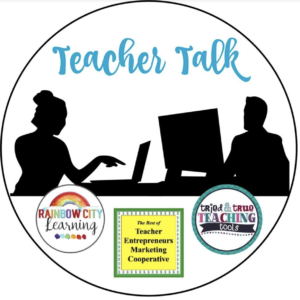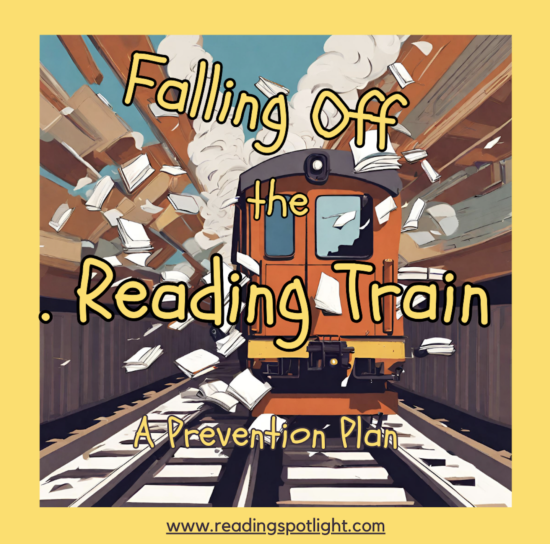Each year several struggling students in most American classes fall off the grade-level reading train, increasing to an almost unmanageable class number by eighth grade.
According to the 2022 National Assessment of Educational Progress (NAEP)1, more than half of eighth graders cannot read at grade level, a situation that has not changed since 1992, the first year of NAEP.
This crisis might be due to curriculum demands that require the teacher to move on to new subjects, even though certain students have not mastered the skills being taught. Some students might not have received enough practice in fundamental reading skills due to absence at teaching time, or because of the lack of continuing phonics instruction, or extra practice worksheets when necessary. The Science of Reading movement has begun to address this situation in some schools in recent years.
Most importantly, kids today do very little independent reading to PRACTICE their emerging reading skills at each level. Often, the only actual independent reading they do is short passages as homework for classroom assignments or short bursts on social media, BUT they do spend an inordinate amount of time on their cell phones.
On average, children ages 8-18 spend 7.5 hours a day in front of screens for entertainment alone — which amounts to 114 days a year. Children ages 8-10 spend around 6 hours per day in front of a screen; children ages 11-14 spend about 9 hours a day. Teenagers 15-18 have an average daily screen time of 7.5 hours. Television accounts for around half of that time in all age groups.2
I have a simple two-step PLAN to address the half of American eighth graders who do not read at grade level. I wrote about Step 1 in a previous post:
In Step 1 of my PLAN, the most common decoding weaknesses I have seen in my 30 years as a reading specialist are addressed with effective and engaging practice as homework, extra credit, seat work for early finishers, or learning centers, with very little prep on any language arts teacher’s part. This includes ALL teachers at ALL grade levels. Everyone can help!
In my experience, what appears to be comprehension weakness is not always comprehension weakness. 3 Fluency is often a factor. Many students do not have the background knowledge or language skills on which to rely for decoding unfamiliar words.
TPT is chock-full of effective worksheets to address the need for extra practice in word analysis. Parents, teachers, and friends of struggling readers can use them or Reading Spotlight’s engaging Word Searches to improve word analysis, spelling, and fluency—skills responsible at least 50% of non-grade level readers in middle school. This can also help those good readers who are poor spellers. (Savvy teachers know who they are.) One option is
Reading Spotlight’s Giant Word Search Bundle
Its price has been reduced by more than one-half for the remainder of the school year.
Step 2 of my PLAN involves 20-minute class Book Clubs monthly for which teachers assign independent reading of at least one WHOLE BOOK or more every month.
Please don’t groan! Many parents seem unable to compel their children to read books, but if teachers assign it, parents are more likely to expect their children to complete teachers’ requirements. Students MUST practice the skills they are learning for fluency development—which, in turn is an absolute necessity for comprehension.
If you want to be a good golfer, you must practice. If you want to be a good knitter, you must practice. If we teachers want good readers in our classrooms, we MUST provide the conditions that will enable our students to…practice …the reading skills they are learning at an appropriate grade level.
Please trust me as a 30-year expert in struggling readers: some kids just need EXTRA practice.
I believe independent reading of self-selected books is preferable to long, brain-dulling, chapter-by-chapter examination of a novel over a period of weeks. With a simple set of questions that can be applied to most books, independent reading can provide a more engaging, enjoyable, and motivating reading and learning experience.
- Consider a 20-minute monthly Book Clubs. Research shows that informative book sharing encourages interest, competence and motivation4.
- Pair two or three students who are reading the same book. Offer them 10 minutes of class time to discuss a chapter or two of the book each week.
- Cancel homework twice a week and require independent reading instead. Yes, seriously! I know you think you have certain instructional goals that must be reached, but the most fundamental– reading at grade level– must be achieved. We are losing too many kids.
- Or you might also volunteer for an activity period Book Club designed for struggling readers.
- If you don’t believe you can spare the monthly class time, at least require an old-fashioned book report monthly, signed by a parent. This is NOT asking too much! Parents of cell phone-addicted kids will thank you.
Here are some FREE sources to help you get started. My packet includes questions that encourage even more reading.
Reading Spotlight’s Independent Reading Packet
American Library Association Book Lists
Imagine for a moment…American classrooms full of students who can read their textbooks fluently, with teachers happily educating students in the subjects they enjoy teaching and not worrying about how to adapt the content to large number of students who cannot read at grade level.
It CAN happen!
The sooner we get started, the better our schools will become, and those good readers will truly have the skills necessary to fulfill the American dream.
Download the resources described in this post, and let’s begin.
2Screen Time Statistics for 2022-23
4Reading Motivation: What the Research Says
*Blog Post image created through Canva AI
© Reading Spotlight 2024
Here are some other interesting posts about education from my friends at TBOTEMC:



